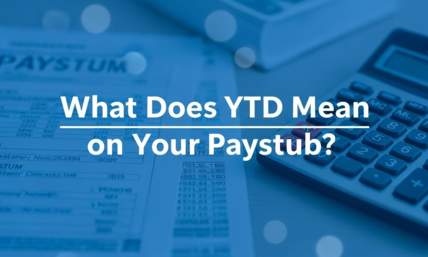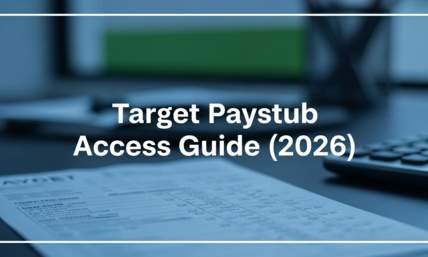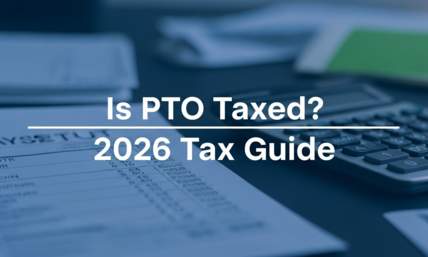What is a Paycheck - The Full Breakdown
Overview
In essence, a paycheck is given to you by your employer for work that you have completed as per the terms of your employment. These paychecks might literally be in the form of a check (paper, hard copy) or electronically/digitally transferred and deposited to your bank account. There’s however far more to paychecks than just this!
So, what exactly is a paycheck?
A paycheck is financial “reward” and acknowledgement of work services that an employee has carried out, which can be deposited into the employee’s bank account or handed out physically - which an employee would then need to cash in to receive the money.
Generally, a paycheck would be allocated to an employee in a two-week cycle - but this can vary depending on the employer, so pay might be forthcoming every week or every month.
Part of a paycheck, and a very important component of receiving a paycheck is the attached pay-stub. A pay-stub (otherwise known as payslip) is a statement and breakdown of payment. Typically, a paystub will state things such as hours, earnings, deductions, sickness leave, rate of pay, gross earnings and net earnings.

Understanding a paycheck and pay stub
A standard paycheck should include the following information:
-
The company details such as their name and address
-
The employer details including name and address
-
The check’s official number
-
The amount of payment
-
The date of issue
-
Employer’s bank details (routing number and account number)
This information is crucial in understanding the correct rate of pay that you’re entitled to and ensuring the correct person is paying and being paid.
When the employee cashes their paycheck, they should remove the pay stub from the paycheck for their own records. Pay stub details should include the following information:
-
Period of work and pay
-
Gross pay figure (pay before deductions)
-
Deductions
-
Net pay figure (pay after deductions)
-
Year-to-date payment figure of all net, gross and deductions
The amount of pay will depend on the individual through deductions and the amount of money they earn. For example, two employees can work at the same company but might receive more money due to a higher position and therefore higher pay, or if that person has their wages garnished with child support payments or an ongoing judgement.
Also read: How Long Can an Employer Hold Your Check After Termination

Understanding deductions
An employer has the legal obligation to hold back a specific amount of an employee’s pay for the purposes of taxation, which is then paid to the IRS (Inland Revenue Service).
If a court has requested an employee’s wage to be garnished, an employer must comply and withhold a further amount of money. Wage garnishment will typically have a completion (for example, when a debt is fully repaid or child support is no longer required), whereas taxes will continue.
Examples of wage garnishment can be due to financial commitments to:
-
Student loans
-
Federal taxes
-
Local taxes
-
Child support
-
A creditor’s judgement
Who will be issued a paycheck?
An employee who is salaried or exempt employees (employees outside of the fair labor standards act due to the nature of their role) will typically expect 26 paychecks within a year with their payments equally paid every time over the period.
However, non-exempt employees are normally on “the clock” which means their time is recorded to ensure they are receiving fair pay, including fair overtime pay in line with the FLSA. This information will be outlined via the paystub.
Also read: What is Paychex?
The types of paycheck
We’ve stated that you may receive a physical check as a payment method for your work, or opt for it being deposited directly into your bank account. It used to be common for paychecks to be a physical check which was printed on paper - and some places still do this. It may be possible to change your payment method with your HR (human resources) department, so if you’re unhappy with receiving a physical check - it’s worth speaking with HR if you have one.
Also read: Can You Deposit Someone Else's Check In Your Account?
Where do I get my paycheck?
Your check will either be sent to your home, deposited into your bank account electronically or handed directly to you at your place of employment. The HR department at your employment address should be able to assist you with how the paycheck will be processed and delivered. Some employers will opt to hire a payroll third party to ensure a smooth process of payment to employees. If this is the case, the employee may be able to access their pay stub information on this third party’s website by creating a digital account.
However you receive your paycheck, it’s crucial to always keep a record of your pay stubs and ensure that you’re checking the pay stub information with your actual payment. Our pay stub generator can help with this.
Also read: Working On Payroll Jobs

What can I do if my paycheck doesn’t arrive?
It is your right that you receive fair payment for work and you also have the right to expect a paycheck to be received in a fair time frame. State rules on paychecks will differ depending on which one you’re working in.
If you have not had your paycheck for whatever reason, it’s imperative you first start by contacting your HR department at your place of employment. Don’t panic or lose patience right away, as there could be a very basic administrative error which can be rectified quickly. If you do not have a HR department, you can try contacting your employer directly or asking your employer for who you should speak with within your work.
If there is not an error and your employer is purposely refusing or withholding your money, it is important that you escalate the situation by filing an official claim with either your state’s labor department or the US department of labor. It may eventually come to it that you’re forced to file a lawsuit with the small claims court in order to receive the money you are owed for work. If this is the case, it may be helpful to seek out an experienced attorney in labour or employment law.
What are the key things to remember?
When it comes to paychecks, there’s a lot of information to absorb - so we’ve provided the most important things to remember for you below:
-
A paycheck is the method by which an employer will pay their employees.
-
A paycheck can be issued in the form of a physical paper check or via electronic bank transfer - deposited directly into an employee’s bank account.
-
An employer is required to pay you fairly and punctually.
-
An employer will hold back and record for you all of the necessary deductions which may include taxes, social security payment, medicare, retirement plans and wage garnishments.
-
If you’ve got a problem with your pay, you should speak with your Human Resources department, who should be able to advise you on what’s going on or how you may resolve the situation.
-
It may be required to escalate pay issues further, which may involve court appearances. In which case, it may be wise to seek out an attorney.















